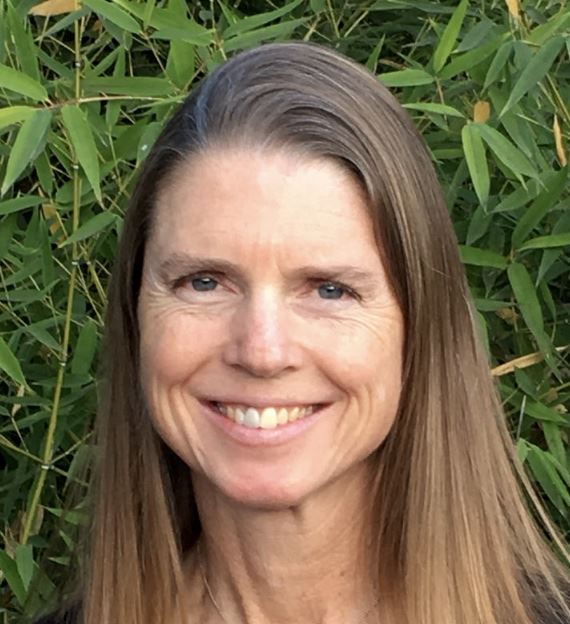Presented by Amara Brook, PhD, LCP
Includes 1.5 CE credits for LMFTs, LPCCs, LEPs and LCSWs.
A recording will be made available to all registrants. For those who can't attend live, CE credit is available by watching the recording and passing a test.
In recent years, there has been increasing recognition of the importance of tailoring assessment and therapy to improve their accuracy and effectiveness for marginalized populations. Autistic people and ADHDers often experience mental health conditions like anxiety and/or depression due to the chronic stress and invalidation of living in a world not designed for these neurotypes. Autistic and ADHD neurotypes interact with societal stigma to drive chronic traumatic invalidation and pervasive shame. Autistic people often respond to this invalidation and shame with masking and camouflaging that is reinforced by societal norms and some treatments, and can further contribute to emotion dysregulation and elevated suicide risk. Drawing on both professional and lived experience, Dr. Brook will discuss ways to make your practice more neurodiversity affirming, from initial assessment through interventions, especially modifications to DBT and CBT.
Program Goals
Understand the neurodiversity model; Understand characteristics of autistic and ADHDer clients that call for tailoring standard therapy; Plan ways to modify your therapy practice to increase effectiveness for autistic and ADHDer clients.
Learning Objectives
By the end of this course participants will be able to:
- Explain the difference between the deficit-based model versus the neurodiversity model in understanding and serving clients.
- State two ways to recognize clients who have autistic and/or ADHD characteristics.
- State two traits of many autistic people and two traits of many ADHDers, and why these may call for modifications to standard therapy.
- Articulate two specific ways that they can modify their own therapy practice to increase efficacy for autistic and/or ADHDer clients.
About the Presenter
 Dr. Brook (they/them) is a neurodivergent licensed clinical psychologist in private practice (amarabrookphd.com and sfmindmatters.com) serving clients in California, Colorado, and Florida. Their passion is helping people understand themselves through psychological assessment and reach their goals using Dialectical Behavior Therapy (DBT) tailored to be optimally effective for their neurotype and other dimensions of diversity. They have particular interest in autism and ADHD. They frequently provide training and consultation to other clinicians around the world, helping them understand neurodivergent people and learn how to provide neurodiversity-affirming assessment and therapy. Recently, they were a guest on Charlie Swenson’s “To Hell and Back” DBT podcast discussing autism, neurodiversity, and ways of adapting DBT to help autistic clients reach their life-worth living goals.
Dr. Brook (they/them) is a neurodivergent licensed clinical psychologist in private practice (amarabrookphd.com and sfmindmatters.com) serving clients in California, Colorado, and Florida. Their passion is helping people understand themselves through psychological assessment and reach their goals using Dialectical Behavior Therapy (DBT) tailored to be optimally effective for their neurotype and other dimensions of diversity. They have particular interest in autism and ADHD. They frequently provide training and consultation to other clinicians around the world, helping them understand neurodivergent people and learn how to provide neurodiversity-affirming assessment and therapy. Recently, they were a guest on Charlie Swenson’s “To Hell and Back” DBT podcast discussing autism, neurodiversity, and ways of adapting DBT to help autistic clients reach their life-worth living goals.
Dr. Brook received their bachelor's degree from Harvard, PhD from the University of Michigan, and advanced clinical training from CSPP. They have completed numerous advanced trainings in Psychological Assessment, DBT, and CBT and are Board Certified in Behavioral & Cognitive Psychology through the American Board of Professional Psychology (ABPP). In the past, Dr. Brook served as Director of Postdoctoral Training, Supervisor, DBT Team Coordinator, and Embedded Psychologist in Emergency Medicine at Kaiser Santa Clara. They also provided clinical services at VA medical centers, and schools. They were also a psychology professor at Santa Clara University and taught a graduate-level DBT course there.
Program Outline
1. Deficit-based versus neurodiversity model
2. How this model applies to autistic and ADHDer clients
3. Recognizing autistic and ADHDer clients
4. Traits of many autistic and ADHDer clients that necessitate modifications to standard therapies
5. Specific ways to modify therapy that may increase effectiveness for autistic and ADHDer clients.
References
Hallowell, E.M. & Ratey, J.J. (2021). ADHD 2.0. New York: Ballantine.
Halmøy, A., Ring, A.E., Gjestad, R. et al. Dialectical behavioral therapy-based group treatment versus treatment as usual for adults with attention-deficit hyperactivity disorder: a multicenter randomized controlled trial. BMC Psychiatry 22, 738 (2022). https://doi.org/10.1186/s12888-022-04356-6
Henderson, D., Wayland, S, & White, J. (2023). Is this Autism? A Guide for Clinicians and Everyone Else. New York: Routledge.
Mazefsky, C.A. (2015). Emotion Regulation and Emotional Distress in Autism Spectrum Disorder: Foundations and Considerations for Future Research. J Autism Dev Disord 45, 3405–3408. https://doi.org/10.1007/s10803-015-2602-7
McVey, A.J. & Locke, J.J. (2022, November 17). Leveraging implementation science and human-centered design to redesign DBT for young adults on the autism spectrum. [Poster]. Annual meeting of the International Society for the Improvement and Teaching of Dialectical Behavior Therapy, New York, NY.
Silberman, S. (2015). Neurotribes: The Legacy of Autism and the Future of Neurodiversity. New York: Penguin.
Zylowska, L. & Mitchell, J.T. (2020). Mindfulness for Adult ADHD: A Clinician's Guide. New York: Guilford.
TARGET AUDIENCE: LCSWs, LMFTs, LPCCs, LEPs
This is an introductory level course.
If you miss any of the presentation, you will not be eligible for the CEUs. This course meets the qualifications of 1.5 continuing education credits for LMFTs, LPCCs, LEPs and/or LCSWs as required by the California Board of Behavioral Sciences. SCV-CAMFT is a CAMFT-approved continuing education provider (CEPA 052466).
The views expressed in presentations made at SCV-CAMFT meetings or events are those of the speaker and not, necessarily, of SCV-CAMFT. Presentations at SCV-CAMFT events do not constitute an endorsement of the vendor or speaker's views, products or services.
Event Policy Information
